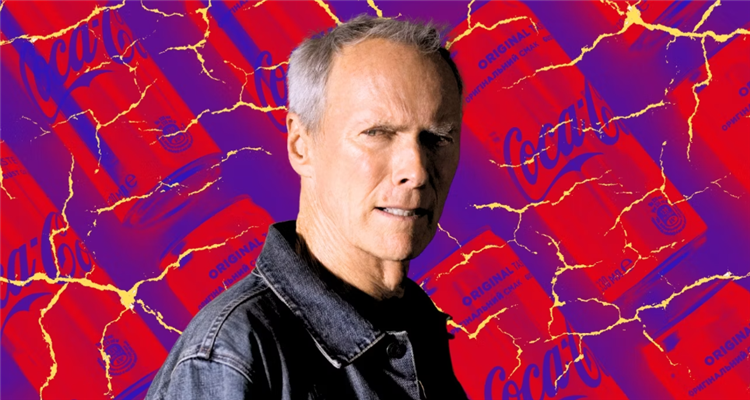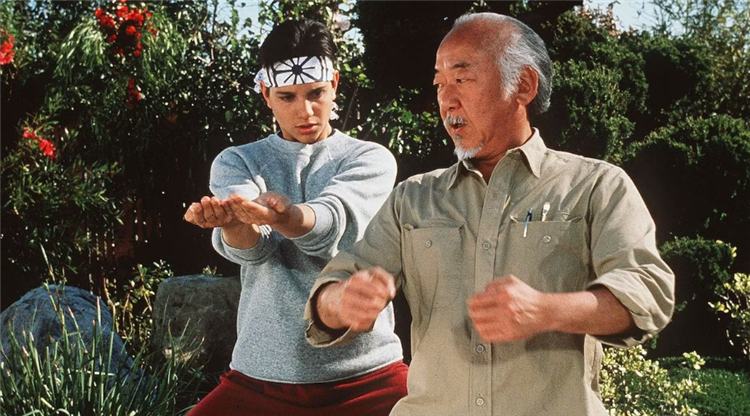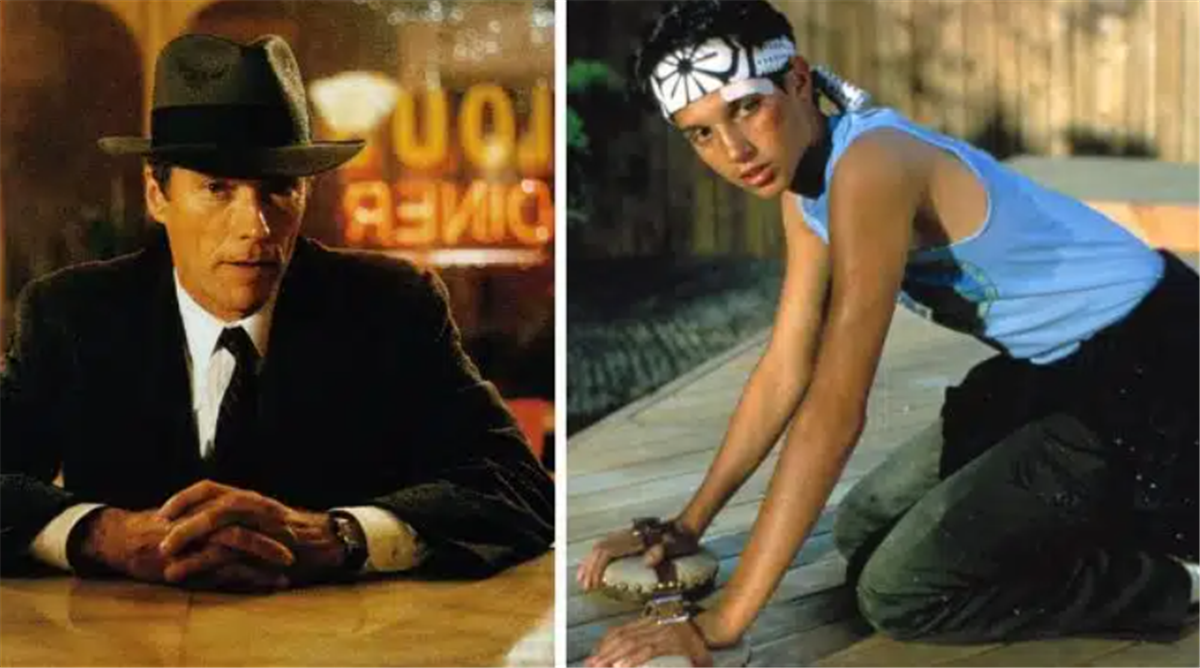It’s a fact that all the best filmmakers have a few odd quirks. From the tradition of Steven Spielberg being absent when the final scene of his latest project is being shot, to Martin Scorsese banning the use of wristwatches on his sets, stories about the bizarre regulations famous directors have made an integral part of their DNA are often as fascinating as the films they help to produce. It’s no surprise that Clint Eastwood – one of the most prolific and acclaimed filmmakers of his generation – would also have developed some throughout his sixty-eight years (and counting) in the industry. As expected, most would fit neatly alongside the previously mentioned examples in an easy-to-read article entitled “Fun Pieces of Hollywood Trivia,” but there is one whose mystifying nature demands a more thorough analysis: why he allegedly refuses to let Coca-Cola products anywhere near his films. And it involves… his son Kyle Eastwood and The Karate Kid?
Clint Eastwood’s Family Is Full of Artists
There aren’t many names as synonymous with American cinema as Clint Eastwood. Ever since he first ventured out into the barren plains of the American frontier in the Western serial Rawhide, Eastwood has been an indispensable part of the Hollywood mythos. His roles as the “Man with No Name” in Sergio Leone’s Dollars Trilogy and as anticop cop Harry Callahan in the Dirty Harry pentalogy (two of the most recognizable characters in cinema) cemented him as a bona fide pop-culture icon, while his reinvention as a director starting with 1971’s Play Misty for Me proved that he was far more than just a handsome renegade. His box office pull may have diminished in recent years, but there’s a reason why he’s still a favorite of esteemed publications like Cahiers du Cinéma. Few actor-directors have produced such an extensive body of work as Eastwood – one that celebrates the American national character whilst simultaneously critiquing it at every possible juncture. When you’re ninety-three years old and still one of the most intriguing figures in modern filmmaking, you know you’re doing something right.
But such lofty achievements were destined to leave high expectations for his next-of-kin, regardless of whether a career in the movies was something they were even interested in. For what it’s worth, some of Eastwood’s children have tried to follow in his footsteps. Scott Eastwood, for example, is making a healthy living popping up in action films while Francesca Eastwood has appeared in a variety of supporting roles on prestige shows like Fargo and Twin Peaks: The Return. Other members of the Eastwood family tree have also found moderate success in the industry, and while none have come close to dethroning the patriarch who started this genealogy, it’s undeniably fun to see Clint’s legacy extending in such a way.
Clint Eastwood Considered Becoming a Jazz Musician Before Acting

Kyle Eastwood was also keen to pursue a career in the arts, although his passion leaned towards another of his father’s great loves – music. Long before Clint was vying to unseat John Wayne as the finest outlaw to ever grace the Wild West, the self-proclaimed “jazz freak” spent his teenage years playing the blues at the Omar Club in Broadway, Oakland, debating whether this was his calling in life. His attempts to become a singer were not fruitful, but Clint has kept this fire burning by providing the soundtrack to many of his directorial projects (earning him three Golden Globe nominations for Best Original Score in the process). When the time came, this love was transferred to his son with total ease. From the moment eight-year-old Kyle was taken by his father to the lauded Monterey Jazz Festival, his heart was set on becoming a jazz musician. To Clint’s credit, he has always been supportive of this goal and even served as his son’s teacher when he was first learning to play the bass.
But as should be expected when your dad is the Clint Eastwood, Hollywood was a constant presence in Kyle’s life. Mercifully, the musician has embraced rather than rejected this inevitability. Kyle has been appearing in minor roles across his father’s filmography since The Outlaw Josey Wales, but a turning point came in 1982 when, aged fourteen, he appeared alongside Clint in the whimsical Western musical Honkytonk Man. Although Kyle enjoyed his time with the film, it came with the realization that acting wasn’t for him. “It was fun, sure,” he revealed in a 2013 interview with The Independent, “but I quickly came to the conclusion that directing interested me more than acting.” A few years later, Kyle was studying film at the University of Southern California, but it wasn’t long before he was back on the music train.
However, sandwiched between these life-changing events was Kyle’s flirtation with The Karate Kid. Kyle was discussed to portray Daniel LaRusso, the Italian-American underdog whose rags-to-riches journey forms the emotional core of the expansive Karate Kid franchise. According to Kyle, it was Clint who was in talks for the project first: “My father was looking at the script originally and then decided not to do it. He had mentioned it to me and said he thought it was an interesting part.” The same interview saw Kyle confirming his willingness to play the role, but it’s clear that, once his father exited the film, it would have taken a miracle for him to prevail (not unsurprising given that he was sharing audition space with gifted up-and-comers like Robert Downey Jr., Sean Penn, and Charlie Sheen). Ultimately, it was Ralph Macchio who emerged victorious thanks to his work on Francis Ford Coppola’s The Outsiders, leaving this as a curious what-if in the life of Kyle Eastwood.
Clint Eastwood Almost Directed ‘Karate Kid’

But Clint had no desire to accept his son’s rejection admirably, hence that aforementioned ban on Coca-Cola. In her autobiography The Good, the Bad, and the Very Ugly, actor Sondra Locke (Clint’s partner throughout much of the ’70s and ’80s) expanded upon the Karate Kid situation: “Clint had agreed to direct Karate Kid for Columbia only if Kyle played the lead, but they had refused. Clint forever more banned Coca-Cola from his sight.” As strange as it sounds, there was some logic to his thinking. Columbia had been purchased by The Coca-Cola Company in 1982, and would remain under the beverage corporation’s authority until they were sold to multinational conglomerate Sony in 1989. That’s a seven-year window in which the titular soft drink dictated the studio’s bottom line – a juicy piece of information for someone looking to enact retaliation against the company. By all accounts, Clint wasted little time outlawing Coca-Cola products on his sets, and with no confirmation that this ban has ever been lifted, presumably this rule is still enforced almost four decades on. Talk about holding a grudge.
Clint may hold resentment over the whole event, but his son certainly does not. In the years since 1984, Kyle has become a highly accomplished jazz musician, releasing a multitude of acclaimed albums that have allowed him to become his own man rather than being condemned to a life of daily comparisons to his father. In addition, Kyle has also scored many of his father’s films including Gran Torino, Invictus, and the World War II double-feature Flags of Our Fathers and Letters from Iwo Jima, keeping their family collaborations as frequent as ever. When asked if he had any regrets concerning The Karate Kid, Kyle’s answer was quite simple: “I don’t have any regrets,” before reiterating that music was always his true passion. The words of someone content with their place in the world.
